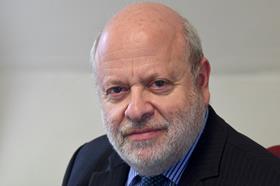No-one likes being told regularly to do the right thing. Yet we lawyers are being told that all the time, more so now than ever. One of our biggest exhorters is the Solicitors Regulation Authority – ironically, now facing the same call itself.

I will start away from the SRA, with the most significant event of the week. By the time this article is published, the result of the US election may be known. If Donald Trump has won by a clear margin, my example may no longer apply. But his team were already pursuing lawsuits to allege electoral cheating before election day.
Addressing lawyers, the New York Times saw fit to publish an opinion piece a couple of weeks ago, telling us that ‘Lawyers Should Not Assist Trump in a Potential Power Grab’:
‘Lawyers cannot, consistent with their ethical obligations, participate in devising litigation that is retrofitted to support the position Mr. Trump seems to hold — that the only “real” Americans are those who cast their ballots for him and that those who vote against him are by definition engaging in fraud.’
We have a familiar legal conundrum here: the balance between the client’s interest and the public interest. The newspaper article is clear which governs.
Lawyers who assisted Donald Trump the last time around when he alleged a stolen election have faced consequences. Kenneth Chesebro, one of his lawyers from the 2020 election, last week joined the list of other Trump lawyers who have suffered disciplinary sanctions from their own bar: he was suspended from practice in New York after being found guilty of a serious crime (knowingly and wilfully joining a conspiracy to change the outcome of the 2020 election in Georgia).
One country whose future very much depends on the outcome of the US election is Ukraine, and it provides a recent example of a lawyer doing the right thing and taking responsibility. Its prosecutor general, Andriy Kostin, whom I know from a past life, resigned when it was discovered that a high percentage of regional prosecutors had been granted disability status, which exempted them from military service.
The Ukrainian government has been cracking down on corruption and draft referrals. In one region, 61 prosecutors had been registered with disabilities. Andriy Kostin agreed to take personal responsibility, and went. (It was not only prosecutors who were affected: also customs and tax officials, and officials in the Pension Fund system, and in local administrations. A new system for granting disability status is now being set up.)
Some are born responsible, some – like Andriy Kostin – achieve responsibility. And some have responsibility thrust upon them.
There was recent news about Clifford Chance and its report into human rights in Saudi Arabia. Clifford Chance is well-established in Saudi Arabia in a joint venture, and was commissioned to write an independent report for FIFA on Saudia Arabian human rights in advance of consideration of the country’s bid to host the 2034 World Cup. Eleven human rights organisations have now severely criticised the report for being limited only to those human rights instruments that Saudi Arabia has ratified and that were deemed to apply to the hosting and staging of the World Cup. As a result, the report omits many systemic human rights abuses (the imprisonment of women’s rights activists and dissidents, severe restrictions on freedom of expression, the execution of at least 200 individuals in the first nine months of 2024, and the exploitation and suppression of rights of migrant workers). A public row has ensued.
And so now we come to the SRA. The SRA is always keen that lawyers do the right thing and own their conduct.
Its recent SLAPP warning notice, for instance, sternly reminds solicitors that ‘Litigation strategy is your responsibility and understanding the ethical boundaries of it cannot be abrogated to your client.’
Its AML guidance is full of references to people behaving properly and accountably – for instance, ‘Managers of a firm may also be held responsible for failings by the firm where they had a responsibility for the relevant breaches or should have known about them and intervened.’
All of which leads us to the huge story from last week, about the SRA’s own failings in relation to its intervention in Axiom Ince. The Gazette has covered the report’s findings comprehensively. Its editorial in last week’s magazine said the SRA was in denial about the recommendations, and that red flags had been waving madly for a while, including within the SRA itself.
It is the SRA’s role to ensure that solicitors behave, that they accept responsibility and own their conduct. The Gazette’s editorial said that urgent questions were being asked about the SRA’s ability to regulate solicitors.
What happens if a regulator which has been publicly exposed does not respond in the way in which it expects those whom it regulates to behave? What happens?
Jonathan Goldsmith is Law Society Council member for EU & International, chair of the Law Society’s Policy & Regulatory Affairs Committee and a member of its board. All views expressed are personal and are not made in his capacity as a Law Society Council member, nor on behalf of the Law Society































5 Readers' comments